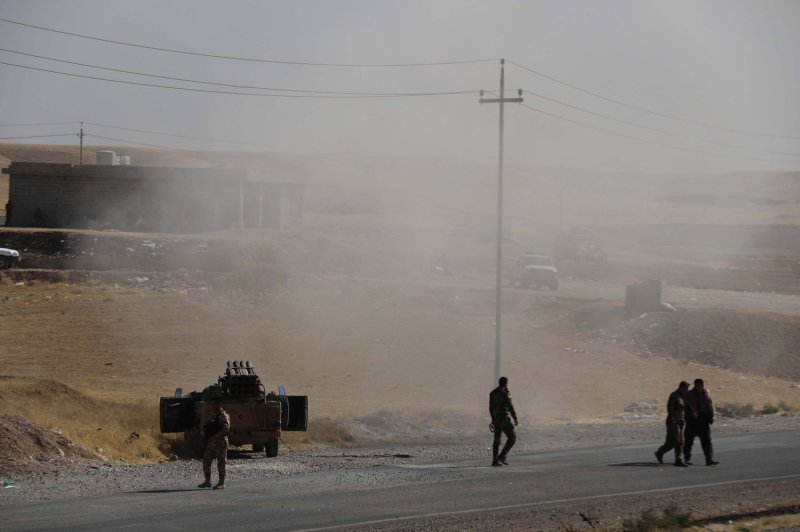Kurdish government backs off ambitions for independence, just days after Iraqi forces seized control over the oil fields in Kirkuk. Photo by Hana Noori/UPI |
License Photo
Oct. 25 (UPI) -- With oil the source of regional disputes, the semiautonomous Kurdish government in northern Iraq said it was backing off its ambitions for independence.
The Kurdistan Regional Government said in statements published Wednesday that greater Iraq and the self-governed Kurdish provinces were faced with "grave and dangerous" circumstances that followed a contentious referendum for Kurdish independence. The referendum coincided more or less with the liberation of Mosul and other key areas of northern Iraq from the terrorist group calling itself the Islamic State, known variably as ISIS, ISIL or Daesh.
Liberation prompted a reconstruction effort by the Iraqi government. After tensions escalated in the wake of the referendum, Iraqi forces in early October wrestled control over oil fields in the disputed region of Kirkuk, taking over an economic lifeline for Kurdish independence.
Kurdish military forces backed out of the northern city of Sinjar after a confrontation with paramilitary forces loyal to the federal government in Baghdad. The city is included in territories of dispute between the semiautonomous Kurdish government and the federal government in Baghdad. Disputed territories run north from a line stretching from Khanaqin along the eastern border with Iran to Sinjar, near the border with Syria.
The Kurdish government said Wednesday that, in order to prevent the conflict from spiraling out of control, it was proposing a bilateral cease-fire agreement, open dialogue with the federal government in Baghdad and a freeze to "the results of referendum conducted in the Iraqi Kurdistan."
While most of the Iraqi reserves are in the south of the country, hundreds of thousands of barrels move each day north to a Turkish port facility on the Mediterranean Sea. A conflict management proposal published by Raad Alkadiri, a senior energy and national security associate with the U.S. Center for Strategic and International Studies, outlined a bilateral "special status" agreement for the oil and gas reserves in Kirkuk province and sector management from an international third-party company.
British energy company BP confirmed to UPI earlier this week that it resumed technical assistance to an Iraqi oil company working in the northern provinces, work that was stopped in 2015. BP officials met in Baghdad earlier this week with Iraqi Prime Minister Haider al-Abadi to discuss a number of issues.
"One of them was Kirkuk, our potential support and discussion of the current situation," a spokesperson said.
Crude oil from northern Iraq flows primarily by truck and through a pipeline from Kurdish territory to a Turkish sea port. A second pipeline from Iraqi territory in the north could be used once it's rehabilitated.
Skirmishes in northern Iraq had supported a risk premium for crude oil prices in the last few weeks. The price for Brent crude oil was more or less unchanged from the previous session in early Wednesday trading.















